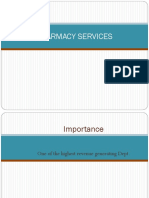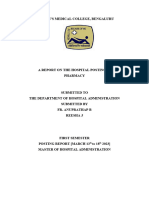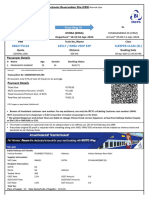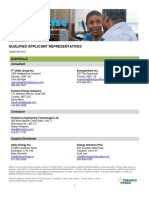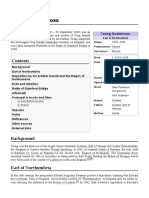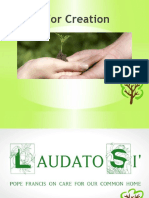0% found this document useful (0 votes)
122 views13 pagesMOM Manual
The MOM Quality Manual outlines the medication management processes at Apollo Clinic, including the development and maintenance of a formulary, safe storage practices, and rational prescribing guidelines. It emphasizes collaboration among a multidisciplinary committee to ensure adherence to national and international standards for medication use. The document also details procedures for handling high-risk medications and emergency medications to enhance patient safety.
Uploaded by
kmshreyapandey0771Copyright
© © All Rights Reserved
We take content rights seriously. If you suspect this is your content, claim it here.
Available Formats
Download as DOC, PDF, TXT or read online on Scribd
0% found this document useful (0 votes)
122 views13 pagesMOM Manual
The MOM Quality Manual outlines the medication management processes at Apollo Clinic, including the development and maintenance of a formulary, safe storage practices, and rational prescribing guidelines. It emphasizes collaboration among a multidisciplinary committee to ensure adherence to national and international standards for medication use. The document also details procedures for handling high-risk medications and emergency medications to enhance patient safety.
Uploaded by
kmshreyapandey0771Copyright
© © All Rights Reserved
We take content rights seriously. If you suspect this is your content, claim it here.
Available Formats
Download as DOC, PDF, TXT or read online on Scribd
/ 13






















